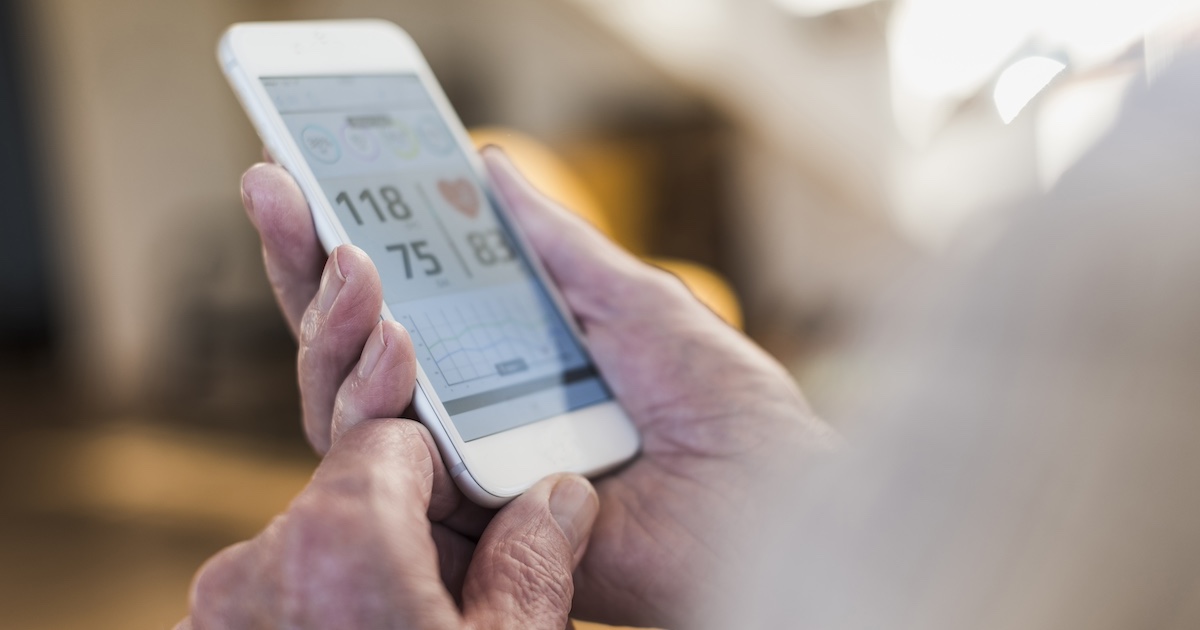Doccla, a provider of virtual ward and remote patient monitoring services, secured £35 million ($38.6 million) in an oversubscribed Series B funding round.
Lakestar led the round, with participation from Elaia and existing investors General Catalyst, which previously led its Series A round in 2022, and Speedinvest and Bertelsmann Investments, which co-led Doccla’s 2021 seed round alongside Giant Ventures.
Oliver Heimes, a Lakestar partner, will join the Doccla board.
WHAT IT DOES
Doccla offers virtual care and research services, including patient onboarding, compliance and clinical monitoring, and logistics management.
The London-based company will use the funds to expand in the U.K. and Ireland by allowing patients to leave the hospital.
Doccla said in a statement that it has counted millions of monitored patient days across more than 10 European countries and recently signed a partnership with Ireland’s Health Service Executive (HSE).
The new funding will also permit Doccia to grow across Europe, in particular France and the DACH countries (Germany, Austria and Switzerland), while at the same time expanding beyond Europe.
“Doccla was founded to provide hospital-level care and support at home for multiple patient profiles across the acuity spectrum, enabling the early discharge of patients, as well as ensuring that for those with chronic care needs, hospital admission might be avoided in the first place,” Doccla founder Martin Ratz said in a statement.
“Technology-enabled virtual wards deliver great benefits for patients, who can recover at home while freeing up resources for healthcare providers. Our work has proven immensely valuable to the UK’s National Health Service, and we’re excited to scale our European operations. At the same time, we see exceptional upside potential for our services in the Life Sciences sector and will continue to invest in our data science operations.”
MARKET SNAPSHOT
In 2022, Doccla supported the recovery of 100 heart patients who underwent ablation therapy at University Hospitals Coventry and Warwickshire (UHCW) NHS Trust.
UHCW NHS Trust and Doccla captured electrocardiogram (ECG) selected vital signs and symptomatic data in patients preparing for a cardiac ablation procedure to treat atrial fibrillation (AFib).
In 2020, Doccla partnered with Northampton General Hospital NHS Trust (NGH) to trial remote smart patient monitoring aimed at freeing up NHS capacity.
Doccla provided virtual wards, built around the use of connected medical wearables in the home, that allowed NGH clinicians to remotely monitor the vital signs of patients recovering from COVID-19 and those living with chronic illness.
Other companies involved in remote patient monitoring include Honeywell Lifecare, which offers a remote health monitoring platform that digitizes and automates time-consuming and critical tasks during routine patient checks and care administration.
Medtronic offers multiple remote patient monitoring offerings, including Medtronic CareLink, which helps patients with diabetes manage their therapy, the MyCareLink Heart app, which can be used to automatically give heart device information to a health care provider; and a Medtronic-managed smartphone, which functions as a bedside monitor for patients who do not have a compatible smart device.
Philips has remote patient monitoring solutions for diabetes, hypertension and heart failure.
Clear Arch Health’s mobile application gives patients the ability to self-monitor vital signs. The offering is an interactive tablet-based RPM system with features that blend Personal Emergency Response System benefits with RPM technology and Remote Life Safety options.
ChronicCareIQ remotely monitors data on a color-coded dashboard and alerts staff when patients are trending in the wrong direction or are symptomatic.
The HIMSS AI in Healthcare Forum is scheduled to take place September 5-6 in Boston. Learn more and register.
Publisher: Source link






